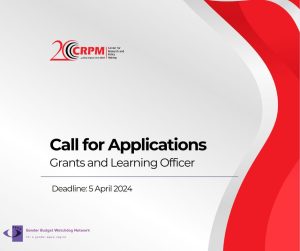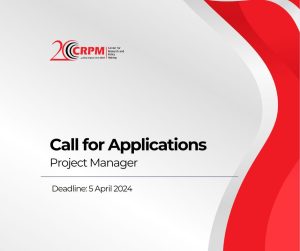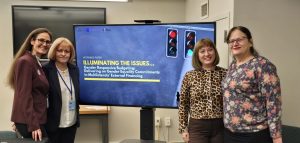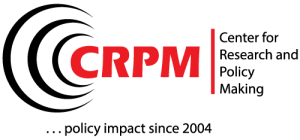First Session of School of Public Policy Mother Teresa for the Generation 2020/2021
held on July 25-27.7, 2020, at Hotel Garden, Ohrid, and online
Report from the First Session of School of Public Policy Mother Teresa for the Generation 2020/2021
held on July 25-27.7, 2020, at Hotel Garden, Ohrid, and online
The topic of the session was Public Policy Analysis. This was an introductory seminar to the general topic of the School of Public Policy. The general aim of the school is to improve the knowledge of the participants in the field of public policy and give them practical insights into political processes. They are future leaders of our country. As such they need to have skills and knowledge to improve the policy making process. It is widely accepted that policy analysis is a technique used in public administration to enable civil servants to examine and evaluate the available options to implement the goals of elected officials. Policy analysis has been defined as the process of “determining which of various policies will achieve a given set of goals in light of the relations between the policies and the goals. Independent policy analysis can be made by think tanks, universities, professional associations, trade unions and other members of the so-called policy network. The general aim of the School is to have our participants able to influence the policy making process through solid, evidence based, high quality policy analysis.
At this first seminar we worked on increasing the skills of the participants of the policy making process getting them acquainted with the theoretical and practical options for undertaking policy research and political decisions. At the Seminar we covered national and regional issues in policy making and gave practical insights to participants how to do policy research and analysis. For example, we talked about strategic planning in tourism industry, taking Ohrid lake development as an example. We discussed, reforms in education and health care sectors as well. Most participants were physically present at the venue. Five of them participated online. This was a challenge and a first-time experience for the School management team. The methodology of the seminar was based on lectures followed by discussions among participants, as well as a simulation game. Bellow is the Program of the seminar and photos from the event.
List of Sessions (explanation with key words)
- Introduction to the training and of the participants, understanding the expectations of the participants, establishing the rules of the game, the working hours and the etiquette in the classroom.
- Defining public policy, what is policy, what is public policy, what ‘should’ public policy do, who makes public policies, key stakeholders, steps in policy making (linear- logical model, cycle), objectives for the analysts in the policy cycle.
- What is policy research and analysis, diverse approaches and methods in policy research, what is the main goal of policy research, steps in policy research, outcome matrix criteria, is there objectivity in policy research, why is there need for policy research, general issues policy analysts should take into account, outputs of policy analysis.
- Exercises in policy analysis- working on six practical cases.
- About writing policy papers-the purpose of the policy paper, structural elements of the policy paper, types of policy papers, about policy study, policy brief and policy memo, common elements of policy papers, planning checklist for writing policy papers.
- Policy advocacy- when does analysis and research influence policy making, what is policy advocacy, how to influence policy and advocate, communication strategy, policy networks and actors, guidelines for successful advocacy, discussion on participants’ experience in advocacy.
- Differences between policy analysis and academic research- description of policy analysis, academic research, what are the main differences?
- About the policy analyst- on models of advise given to clients, what is the strategy of a policy analyst, the difference between policy analyst/advisor and a consultant, who are the clients of policy analysts, why become one, what are the skills needed, the key skill-doing interviews explained, types of policy analysts in the field.
- Practical considerations in policy research- convert your research design into a “to get” list, on data management, about field work, particularities of policy research in the Western Balkans, on qualitative data analysis.
- Why policy analysis in the Balkans?- general reasons, specific reasons, a role for think-tanks, implications for Macedonia.
- Practical considerations on policy analysis in the Balkans- what does a good policy analysis entail, what are the ever green policy questions for this region, where to get data, the importance of legacies, legacies of the past and the future, team work, how to write well the reports, phases in policy writing.
- Recapitulation and tactics for good policy analysis- general tactics, specific issues, test mechanism about the success of the impact of the policy report.
Program
Friday (25.07.2020)
14:00 Departure from Skopje
17:00 Arrival in Ohrid, Hotel Garden
18:00 – 19:30 Sessions 1 and 2 (all times are tentative)
20:00 Dinner
Saturday (26.07.2019)
9:00-10.30
Breakfast
10:30 – 12:00 Sessions 3-4
12:00-12:30
Coffee Break
12:30- 14:00 Sessions 5-6
14:00 – 15:30
Lunch
15:30-16:30
Free time
16:30-18:00 Sessions 7-8
18:00-19:30 Sessions 9-10
19:30-End of Day 2, Dinner and Free time
Sunday (27.07.2020)
10:00-11:30 Session 11-12
12:00-13:30 Presentations of Participants
14:00-15:00
Lunch
15:30-16:00
Evaluations, End of the Seminar
17:00 Departure
Photos













